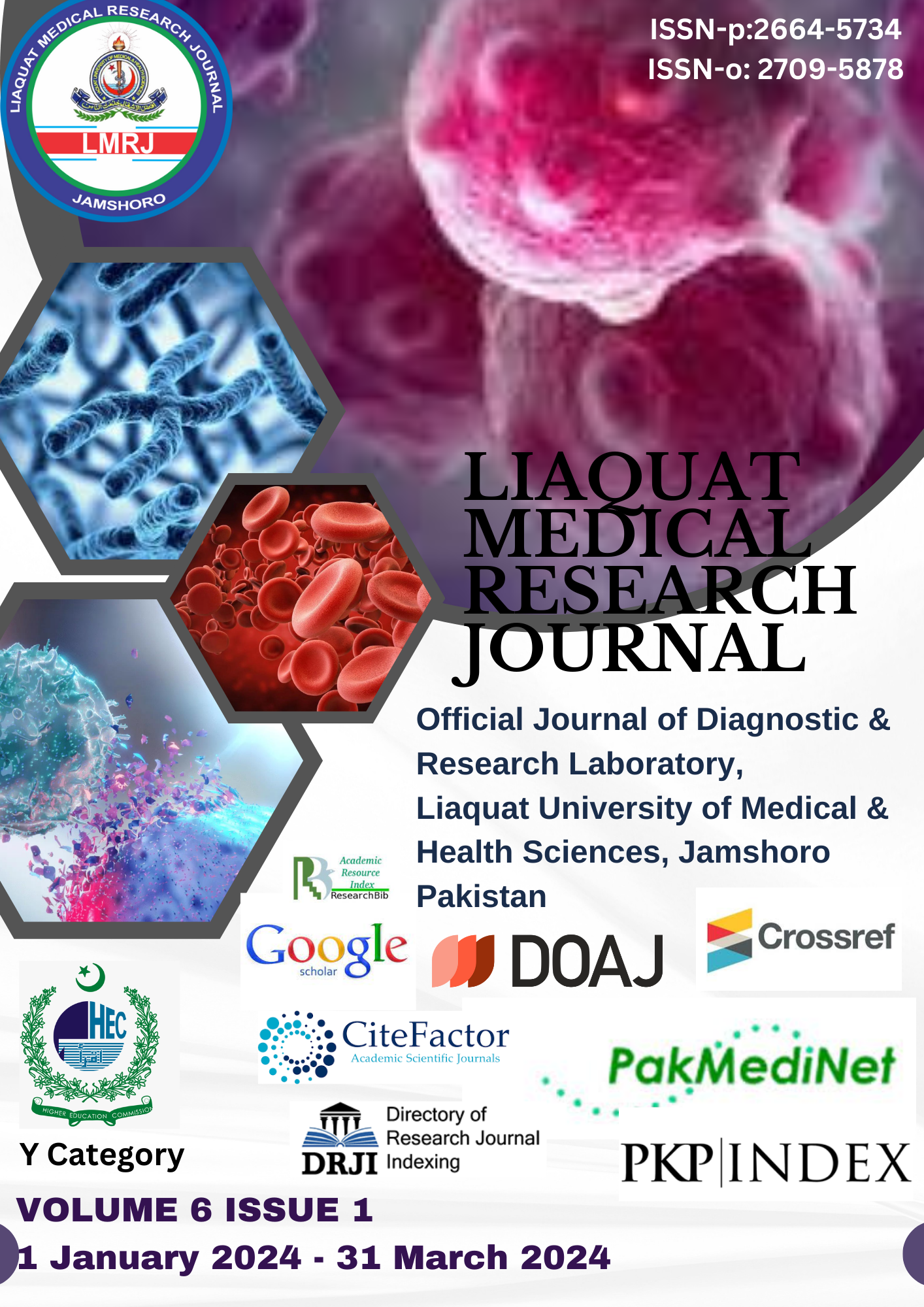Influence of variants mutations on the progression and outcome of COVID-19 in Pakistan
DOI:
https://doi.org/10.38106/LMRJ.2024.6.1-08Keywords:
SARS-CoV-2; variant; COVID-19; PakistanAbstract
Severe acute respiratory syndrome coronavirus 2 (SARS-CoV-2) causing the coronavirus disease 2019 pandemic (COVID-19) has put millions of people at risk in an increasing number of countries, suggesting a serious threat to global public health. The first identification in late 2019, the strain has undergone several changes that have resulted in several genetically different variations that are cause for concern. By comprising the Delta, Gamma, Beta, and Alpha variations, each of which has shown evidence of increased virulence, transmissibility, or capacity for immune evasion as compared to ancestral strains. Their advancement over ancestral strains in transmission was discovered by genomic surveillance, highlighting the vital necessity for monitoring the evolution of SARS-CoV-2. Remdesivir and other treatments showed promising results in reducing the duration of the disease; however, the development of antivirals to prevent the emergence of new variations is still an important goal. The vaccine also provides hope, although its effectiveness against new genotypes needs to be evaluated. Pakistan is also facing the implications of COVID-19. The months-long closing of colleges and universities affected education as well. As SARS-CoV-2 continues to evolve, creating efficient antiviral therapies and guaranteeing vaccination accessibility continue to be critical concerns.

Downloads
Published
How to Cite
Issue
Section
Categories
License
Copyright (c) 2024 Dr. Fahim Ullah Khan, Osama Alam, Fahim Ullah Khan , Autif Hussain Mangi, Mir Sadiq Shah, Saira Abbas, Surayia Shahab Rani, Jalander Shah, Yafes Ali Shah, Shanab Ali Shah, Muhammad Yasir Shah, Naveed Ullah Khan, Majid Ayaz, Muhammad Afnan Khattak, Nasir Khan

This work is licensed under a Creative Commons Attribution-NonCommercial-NoDerivatives 4.0 International License.
Copyright: Open access journal copyright lies with authors and protected under CC BY-NC-ND 4.0 licence (https://creativecommons.org/licenses/by-nc-nd/4.0/).









